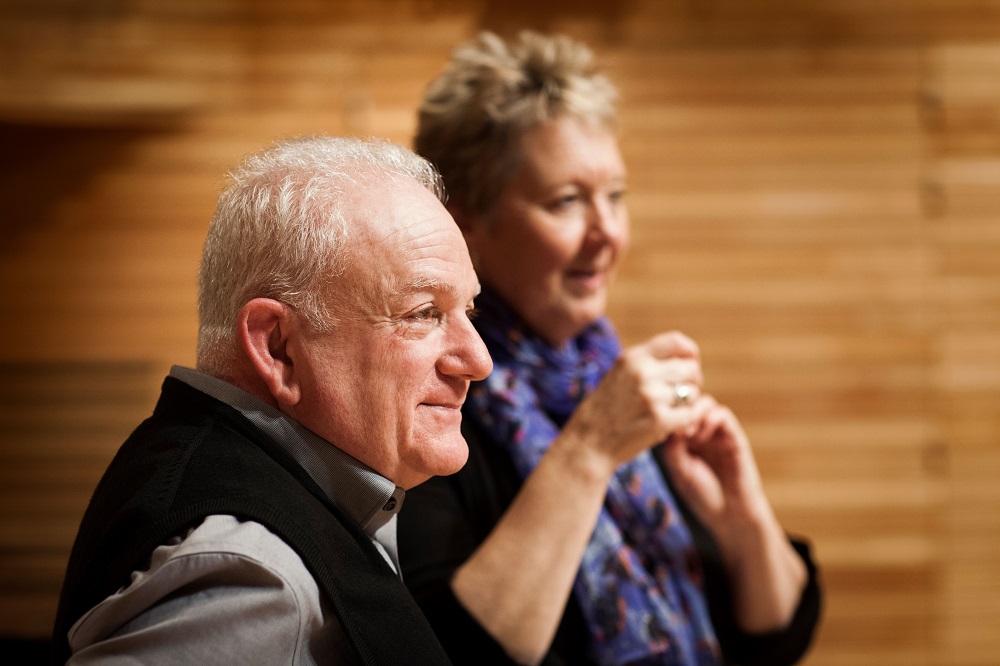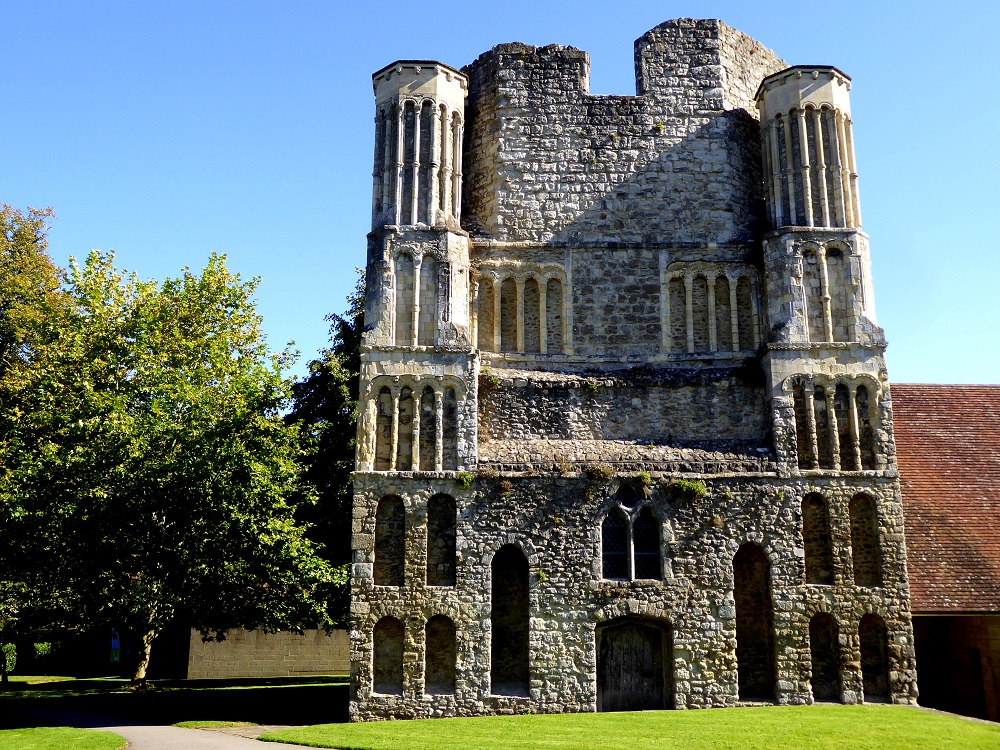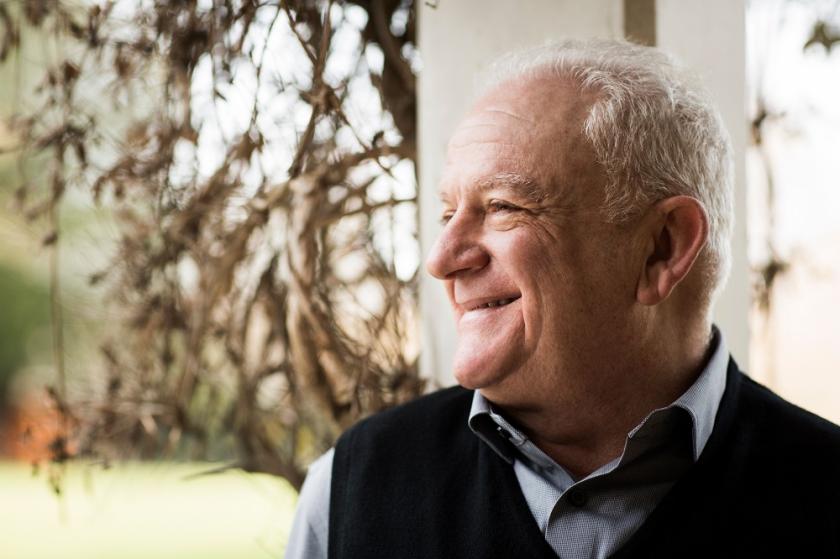It is my very good fortune to be offered by Music@Malling what is, in effect, a retrospective of my work. The music that will be performed was written between 1969 and 2019, exactly half a century. Inevitably, such a survey makes me think about the path I have followed, and although it is not for me to judge my own work, it does make me think about what it is that I have attempted to achieve, and what I need to turn to in the future.
I realise that although my music and its style has developed over the years, many features of my work and my own values have remained remarkably constant. For example, my reluctance to write occasional music and my natural instinct never to follow fashion have remained unchanged. I have always cherished music that sings, music that is dramatic, and have always been preoccupied with rhythm as a means of driving not only local impetus but structure as well. I have never been prolific, and it has always been my purpose to write music that really matters to me and that has a real reason to exist. This has resulted in my writing far less music than I might otherwise have done, but I have no regrets whatsoever. For this trait, my teacher Elisabeth Lutyens, who never stopped writing and always said that she had to write ten bad pieces to write one good one, often referred to me as a Mandarin. I have also always loved poetry and writing for voice, and that remains true from what I consider to be my Opus 1 of 1967, a setting of Baudelaire for soprano and chamber orchestra, to a group of songs for voice and piano that I have just completed.
As a schoolboy in the mid 1960s, at Dartington Summer School of Music, I first came across not only the music of Schoenberg, Berg and Webern but also the music of Boulez, Stockhausen and Berio, not to mention John Cage and a multitude of neo Dadaists. Often there was pressure to conform to the latest compositional techniques, and I am ever grateful to have been too young to have been forced into the folly of total serialism. Yes, there were a lot of isms about, but in many ways it was also such an exuberant time of new discoveries and experimentation. Pictured below: Elias with mezzo soprano Sue Bickley.  There was also an exhilarating sense of fun and good humour in the atmosphere that is so sadly missing from today’s contemporary music scene; at the Royal College of Music Malcolm Fox gave a lunchtime concert in which, with a totally serious mien, he lathered a very large Tam-tam and then proceeded to shave it diligently with a cut-throat razor; at the ICA a recital was given by Charlotte Moorman, a topless cellist, with propellers fastened to her breasts; at the Jeanetta Cochrane Theatre Yoko Ono devised a happening in which all sorts of improbable things happened, including her sweeping the stage vigorously, and then showing a filmed appeal for volunteers to take part in Andy Warhol’s film of multiple buttocks.
There was also an exhilarating sense of fun and good humour in the atmosphere that is so sadly missing from today’s contemporary music scene; at the Royal College of Music Malcolm Fox gave a lunchtime concert in which, with a totally serious mien, he lathered a very large Tam-tam and then proceeded to shave it diligently with a cut-throat razor; at the ICA a recital was given by Charlotte Moorman, a topless cellist, with propellers fastened to her breasts; at the Jeanetta Cochrane Theatre Yoko Ono devised a happening in which all sorts of improbable things happened, including her sweeping the stage vigorously, and then showing a filmed appeal for volunteers to take part in Andy Warhol’s film of multiple buttocks.
My early pieces, strongly influenced by the second Viennese school, used a kind of unorthodox and not very rigorous serial technique which I gradually developed to suit my own ear and musical choices. Looking at some of these early pieces knowing that they have not been performed for 45-50 years was a strange and salutary experience. Of course, they are of their time, but I was also gratified to see that they still have the same thumbprints that pervade my entire output. There were times when it was very difficult to maintain some kind of discipline, so essential to all composition, without surrendering artistic needs to academicism. As the years went by, I found ways to write more and more freely, and no longer felt the imperative to justify every single note I put down. I depended increasingly on the vocabulary, language and structured freedoms that I had developed that now enable me to write directly and intuitively. Now it often feels to me as if my approach and processes are almost improvisatory, curiously reminiscent of the manner in which I used to “make up” pieces when I first started piano lessons. It goes without saying that I would never allow the music that I write to become unstructured, formless and rambling; long practice has taught me that discipline of one kind or another, even if it comes intuitively, is essential and rules, especially those one devises for oneself, are a form of good procedure rather than a restraint. Finding freedom – that could be what the last 50 years have been about.
Watch Psappha perform Brian Elias's Geranos
The pieces to be performed in West Malling will be chamber works, and a few works for larger ensemble will also be included. (I have written a number of large-scale orchestral works which are beyond the remit of this festival.) The first events will take place in a virtual festival this week, from Friday 16 to Sunday 18 October. A second series of live concerts in April 2021 will celebrate the 300th anniversary of Bach’s Brandenburg Concertos, and in Malling’s strong and admirable tradition of including contemporary music, will include the premières of six short new pieces that are responses to the Brandenburg concertos, commissions from Deborah Pritchard, Daniel Kidane, Joseph Phibbs, Michael Price and Stevie Wishart. I have contributed a piece called Sequel, that follows on from the first Brandenburg, using the same instrumentation. I avoided writing pastiche or using a Stravinsky-type neo-classicism, and have produced something more personal. The wonderful rhythmic qualities of Bach’s work, with such strong roots in dance, was a powerful stimulus in the making of this piece.
In late September and early October of 2021, the Music@Malling Festival will also feature several of my pieces, including Electra Mourns, a work setting a speech from Sophocles’s Electra for mezzo soprano, obbligato cor anglais and string orchestra. Other works to be performed will include my Quintet for Oboe and String Quartet, and some more vocal works. There are also plans to show the documentary made about my work by Barrie Gavin, A Passage from India.














Add comment